COSC 729/490:Virtual Reality and its Applications
Group Projects, Semester: Spring 2011 (Flyer) |
| |
Project 1: Modeling and Crowd Simulation Aircraft Evacuation Simulation
Students: Stephen Otunba, Jingxin Han |


|
In this project, we simulate an evacuation behavior in an aircraft using a crowd component. In passed years, there has only 2D simulation and this application can be used by airlines to simulate emergency scenarios without the use of live actors. This will allow airlines to run multiple simulation under a variety of conditions which will save time and lower costs. The application can also be adapted and expanded to other industries.
Click Here to VIEW THE VRML PROJECT (Cabin View)
Click Here to VIEW THE VRML PROJECT (Outside Plane)
Presentation
Can be Viewed in Cortona 3 D player [Download]
|
 |
 |
 |
 |
| |
|
| |
|
Project 2: Solar Storm Exploration and Space Station Simulation
Students: Ruth Agada,Michelle Snowden |
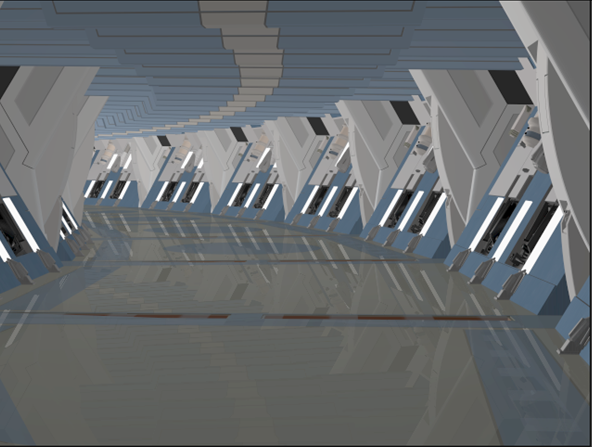
Corridor to walk to the different rooms
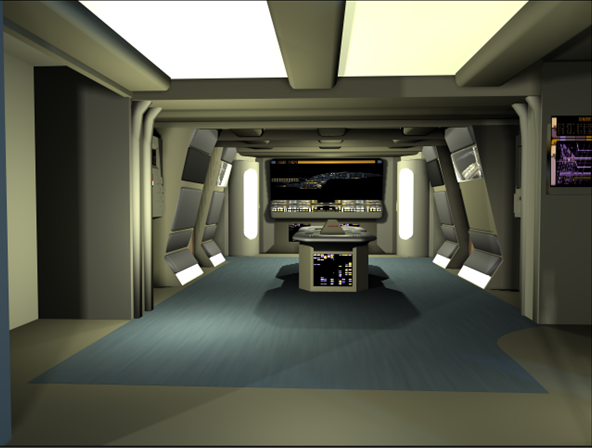
Engine room |
The goal of this project is to create a semi realistic virtual model of our solar system that gives the user the opportunity to explore the different planets in our system. There are 2 main parts to the solar system project: nine planetary bodies (we still consider Pluto a planet) as well as the major moons associated with them, a futuristic model of a space station. The model of the futuristic international space station is a model of a space station from the Star Trek universe. Three rooms have been modeled, the main bridge, the engine room, and the conference room.
Click Here to VIEW THE ENGINE ROOM
Click Here to VIEW THE CONTROL ROOM
Click Here to VIEW THE CONFERENCE ROOM
Click Here to VIEW THE SPACE STATION
Click Here to VIEW THE SOLAR SYSTEM
Presentation
Can be Viewed in Cortona 3 D player [Download] |
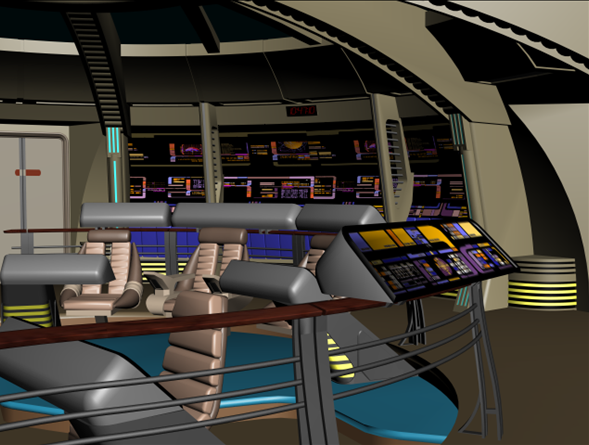
|
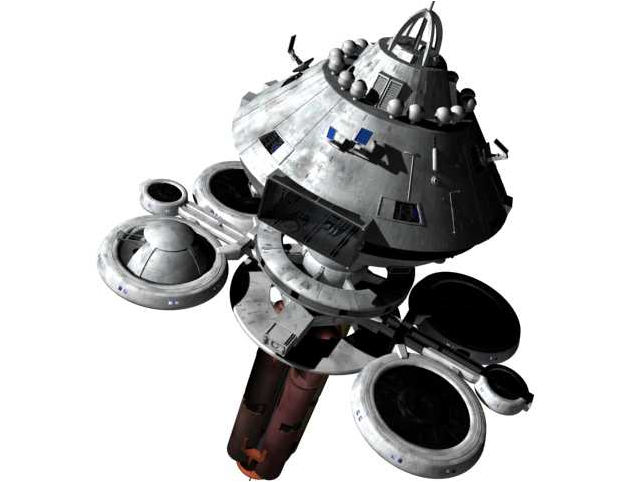 |
Main bridge |
Space Station |
| |
|
| |
|
Project 3: Cafe de Silva: Virtual Restaurant
Students: Kolawole Ogunlana, Tenise Roberts, and Benjamin Harvey |
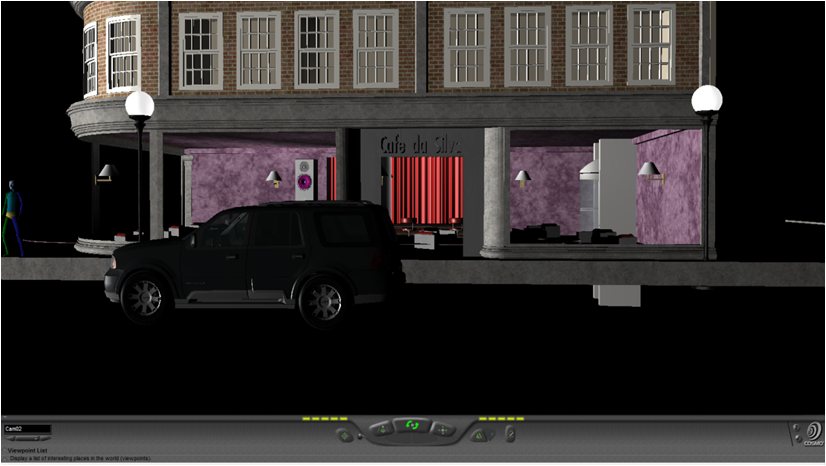
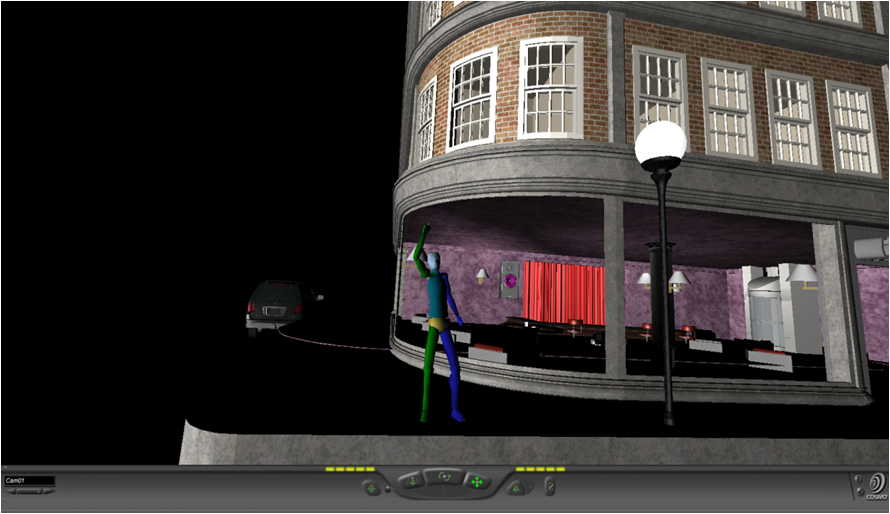
|
The goal of this group project was to simulate a restaurant environment giving our users the ability to explore a virtual tour of the 3D space. This was done by creating interactive attributes within objects such as a door that could be opened giving you access to a hallway, a SUV that could be seen driving around the restaurant, music speakers in a room that play music and human models placed in various strategic locations in the restaurant performing various actions. A case study of a pilot project on the visualization of a virtually modeled restaurant is examined to show an approach derived to show the advantages of a Virtual Reality representation of a restaurant environment through simulation.
Click Here to VIEW The Cafe de Silva
Presentation
Project Report |
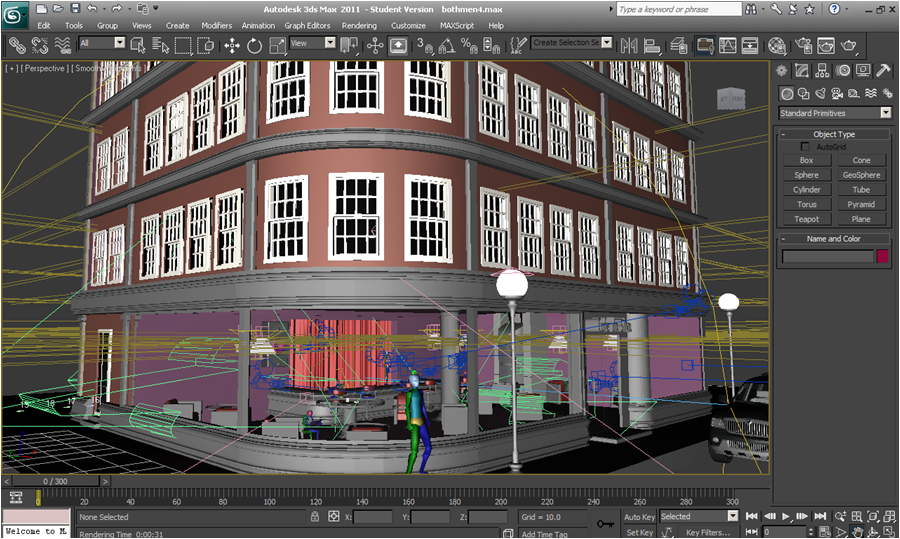 |
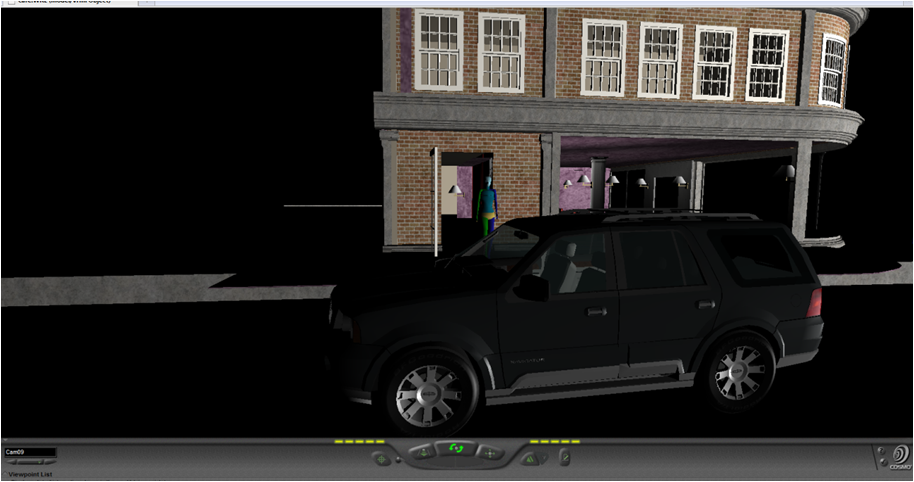 |
| 3DS Max model of Restaurant |
SUV animation |
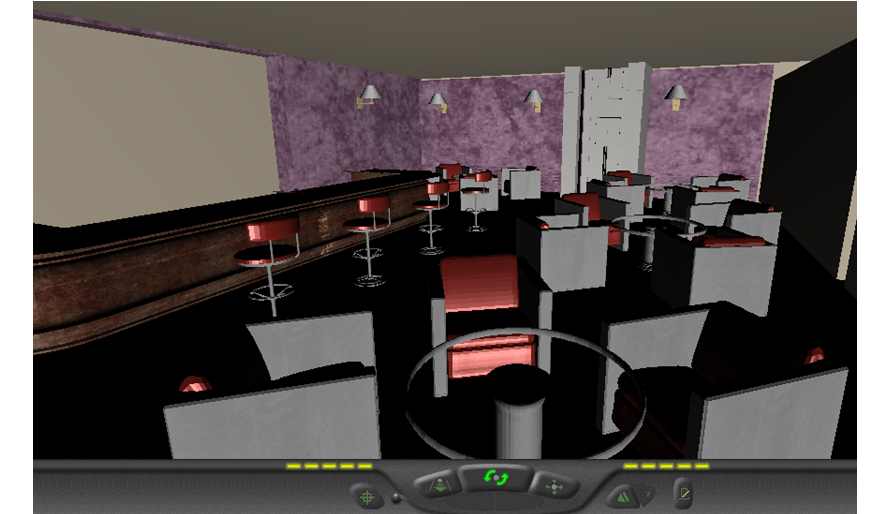 |
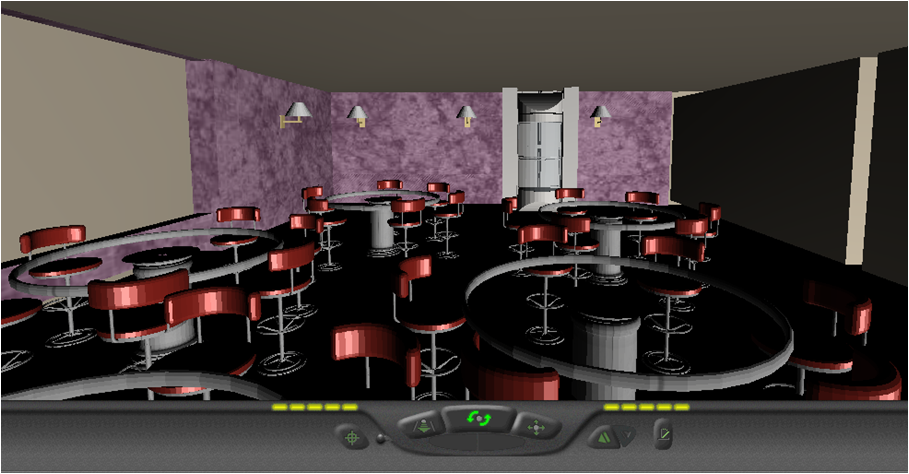 |
| First level of restaurant |
Third level of restaurant |
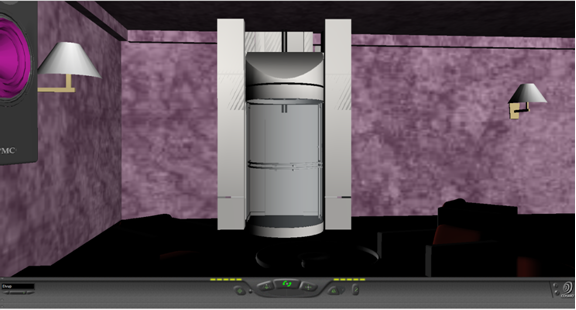 |
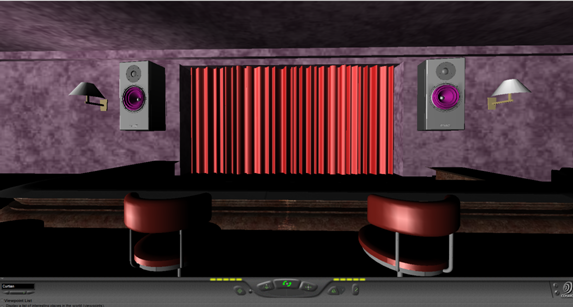 |
| Elevator: Touch Sensor camera for elevator |
Curtain. Touch Sensor camera of curtain |
| |
|
| |
|
Project 4: Interactive Soccer Penalty Shootout
Students: Jeffrey Averett, Abu Kamara, Ronald Sumner
|
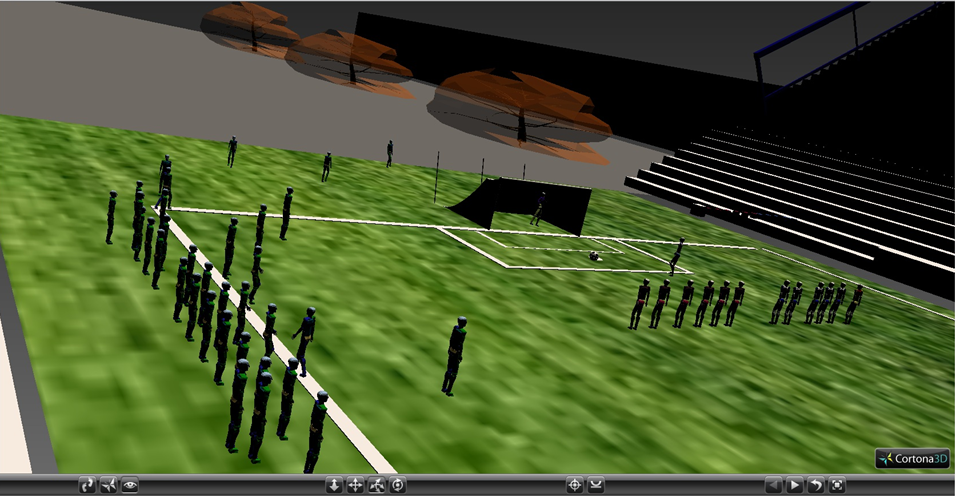

|
The goal of this project is to
simulate a soccer panality kick. When the user clicks on a player, the player walks towards the soccer ball and stands in a position of kicking the ball towards the goal. At the same time, the goal keeper of the other team walks towards the goal post and stands in a position of catching the ball or preventing it from entering the goal. When the user clicks a button, the ball will shoot towards the goal while the goal keeper attempts to block the shot from entering the goal. After the shot is taken the user will also click a button to reset the field.
Click Here to VIEW PROJECT
Click Here to VIEW KICK 1
Click Here to VIEW START THE KICK
Presentation |
 |
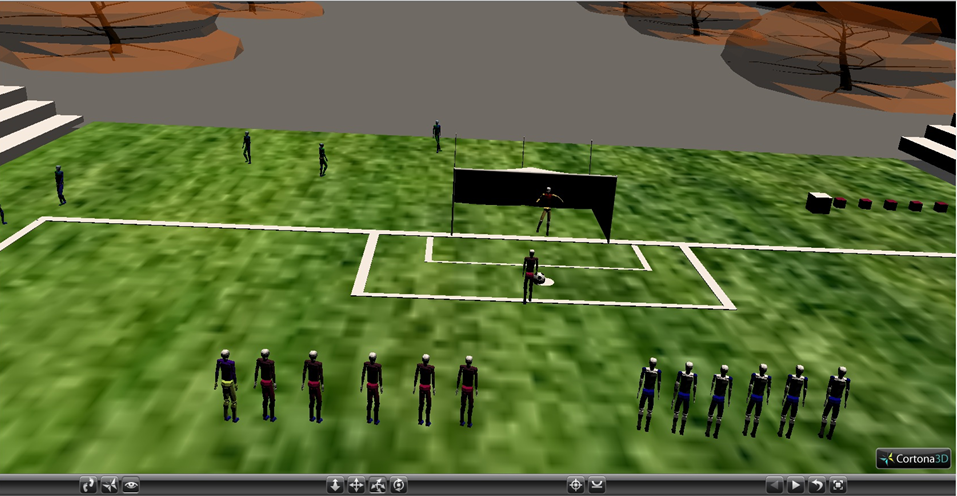 |
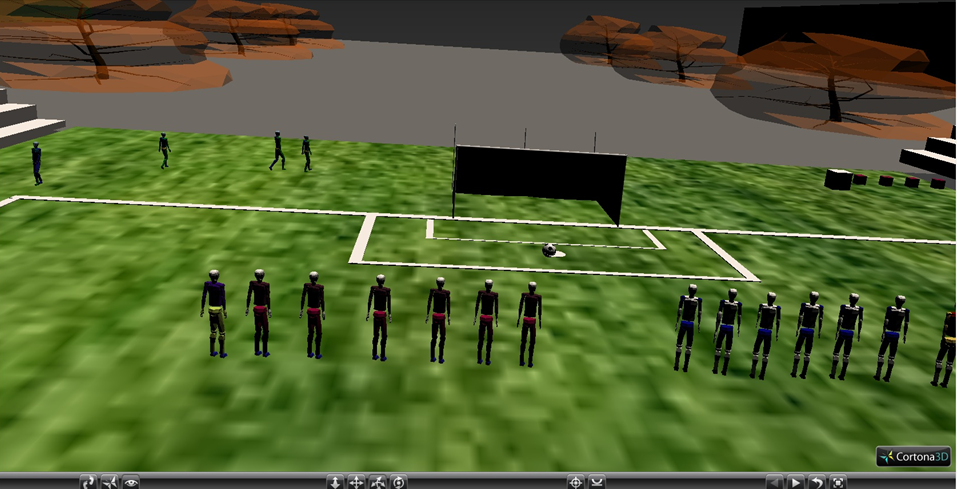 |
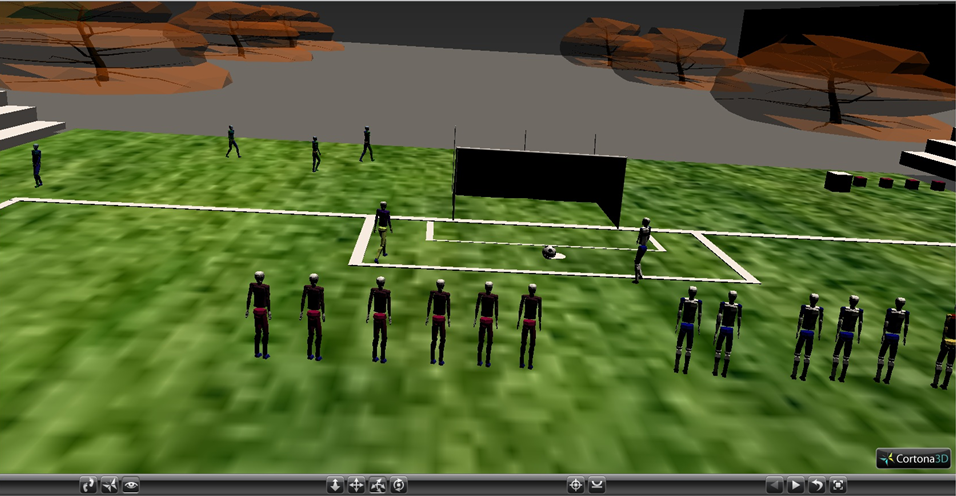 |
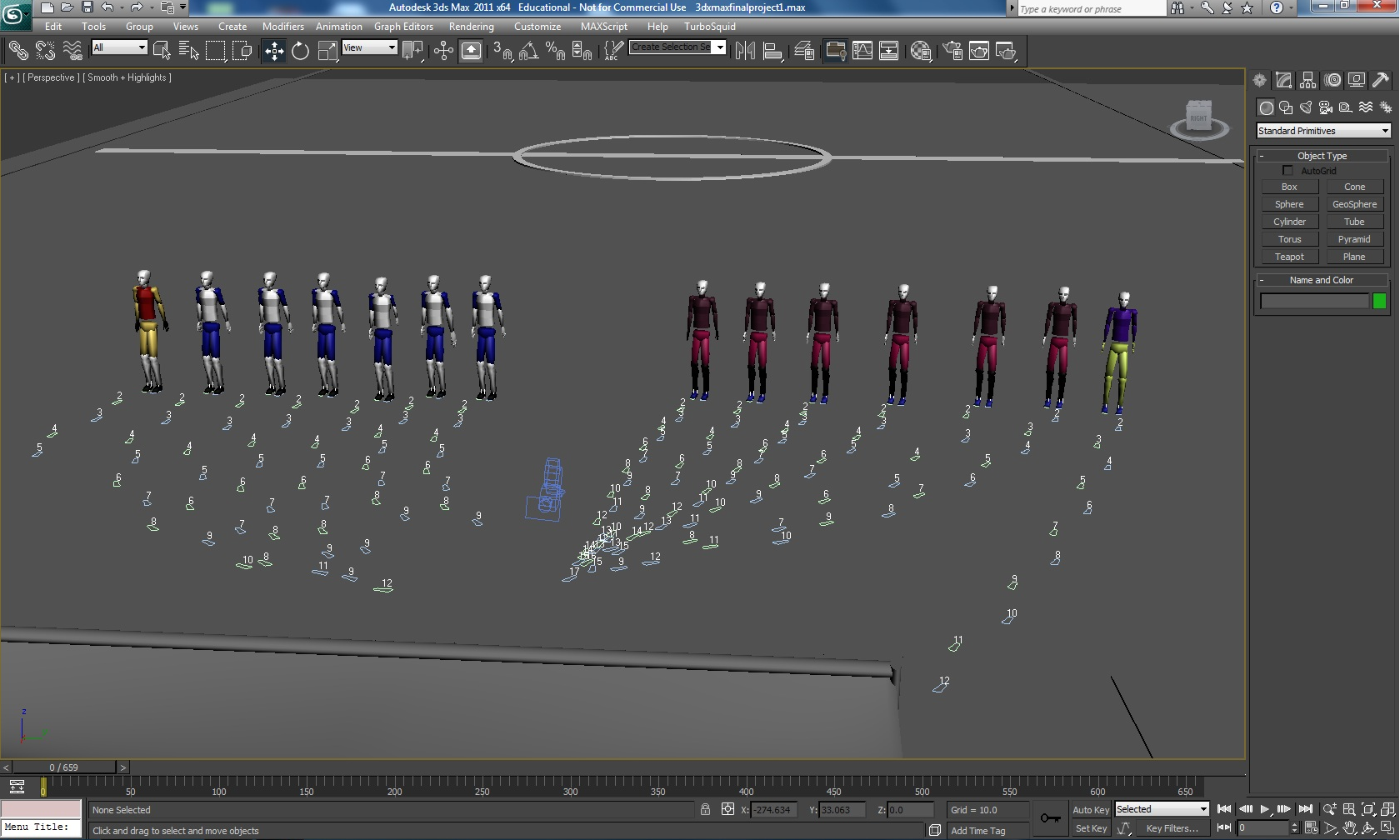 |
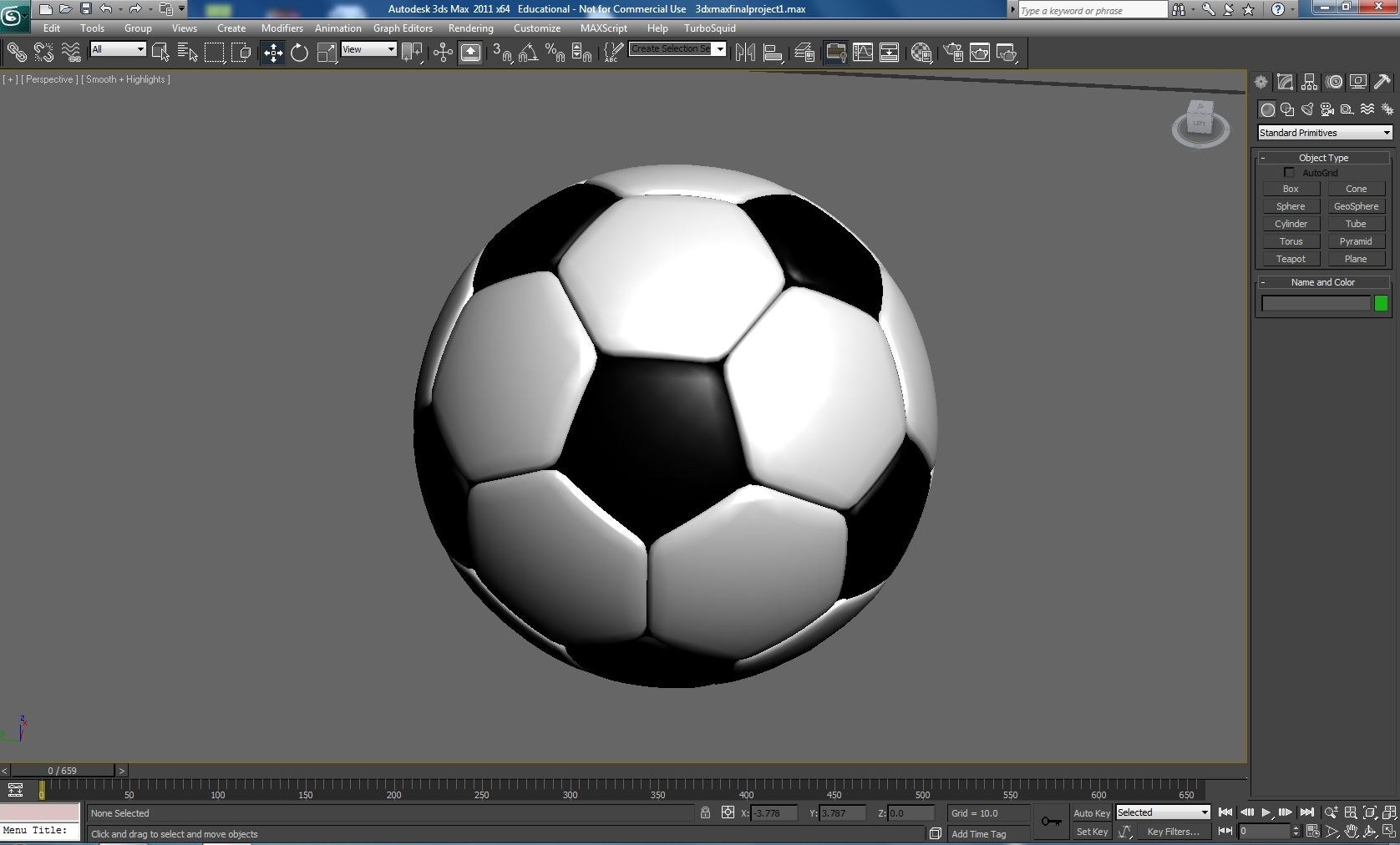 |
| |
|
| |
|
Project 5: Maze Game: 3-Level Obstacle Course
Students: Jeffrey Averett, Abu Kamara, Ronald Sumner
|
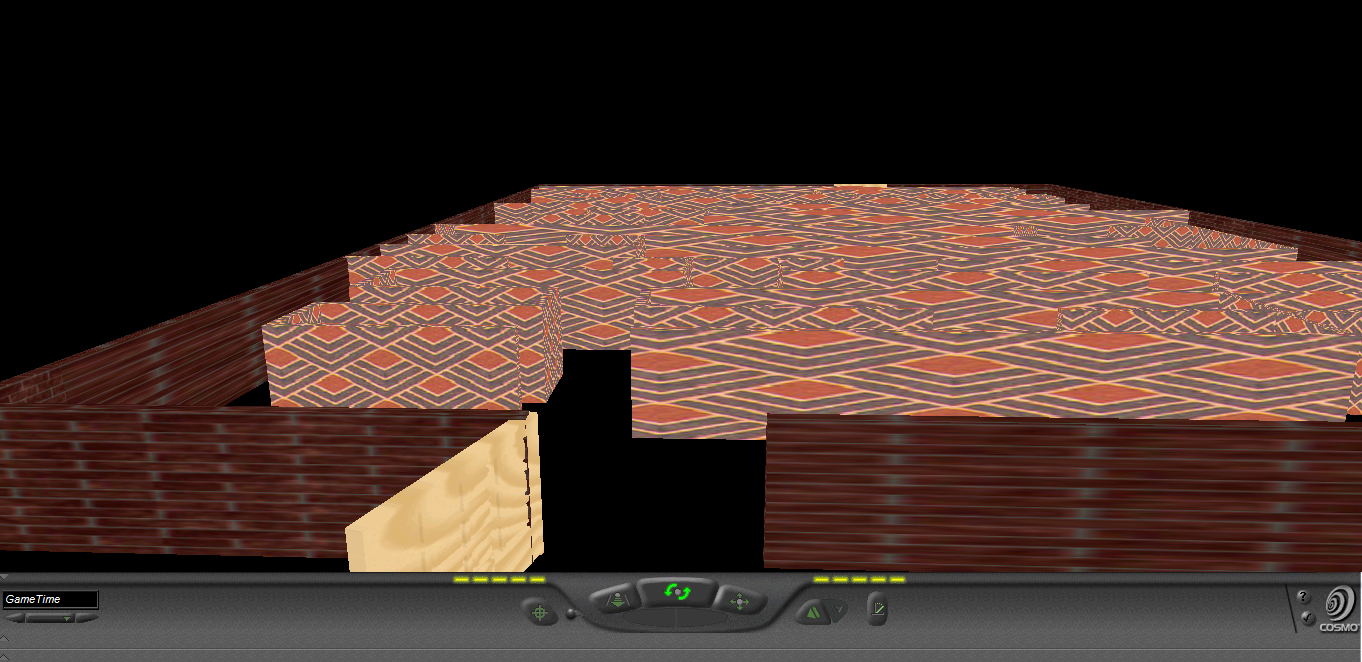 |
The goal of this project was the design and develop a game with 3- levels obstacle avoidance course. Each member of the group designed a separate level. First person view (third person impractical: Explained later). At the end of each level there is a link to the next level via anchor node.
Click Here to VIEW THE FIRST LEVEL
Click Here to VIEW THE SECOND LEVEL
Click Here to VIEW THE THIRD LEVEL
Presentation |
 |
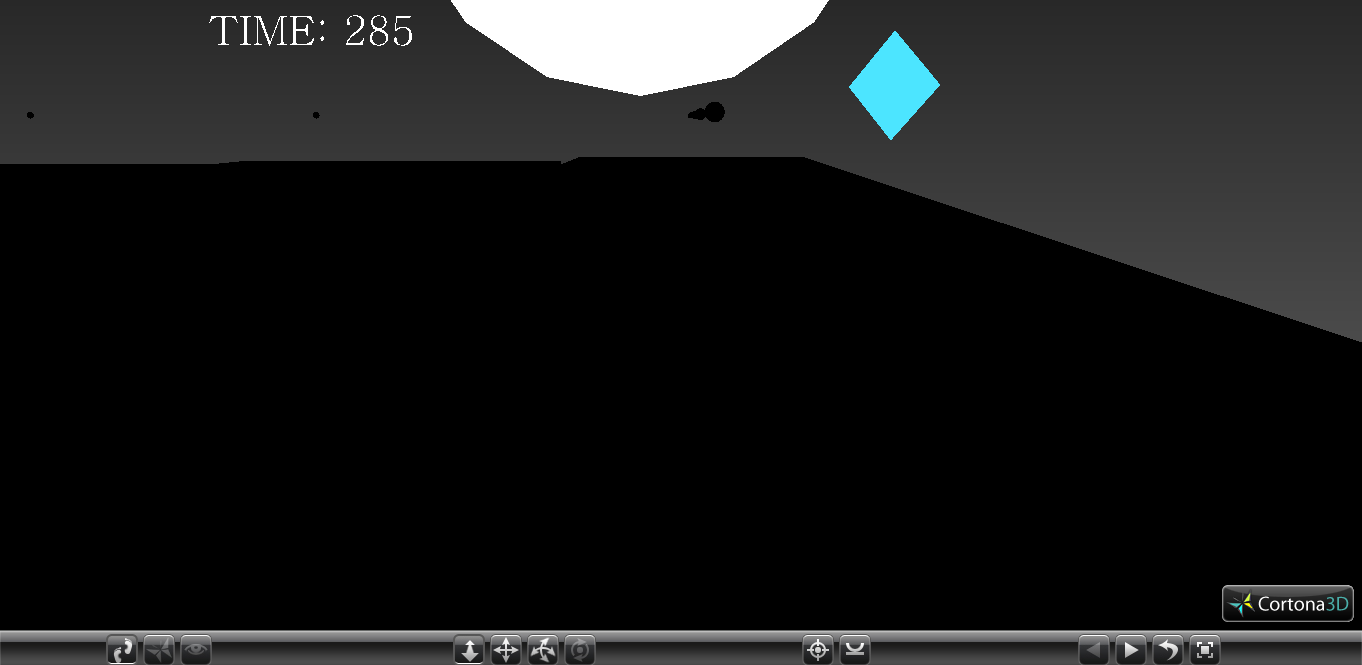 |
| |
|
| |
|
|
|
